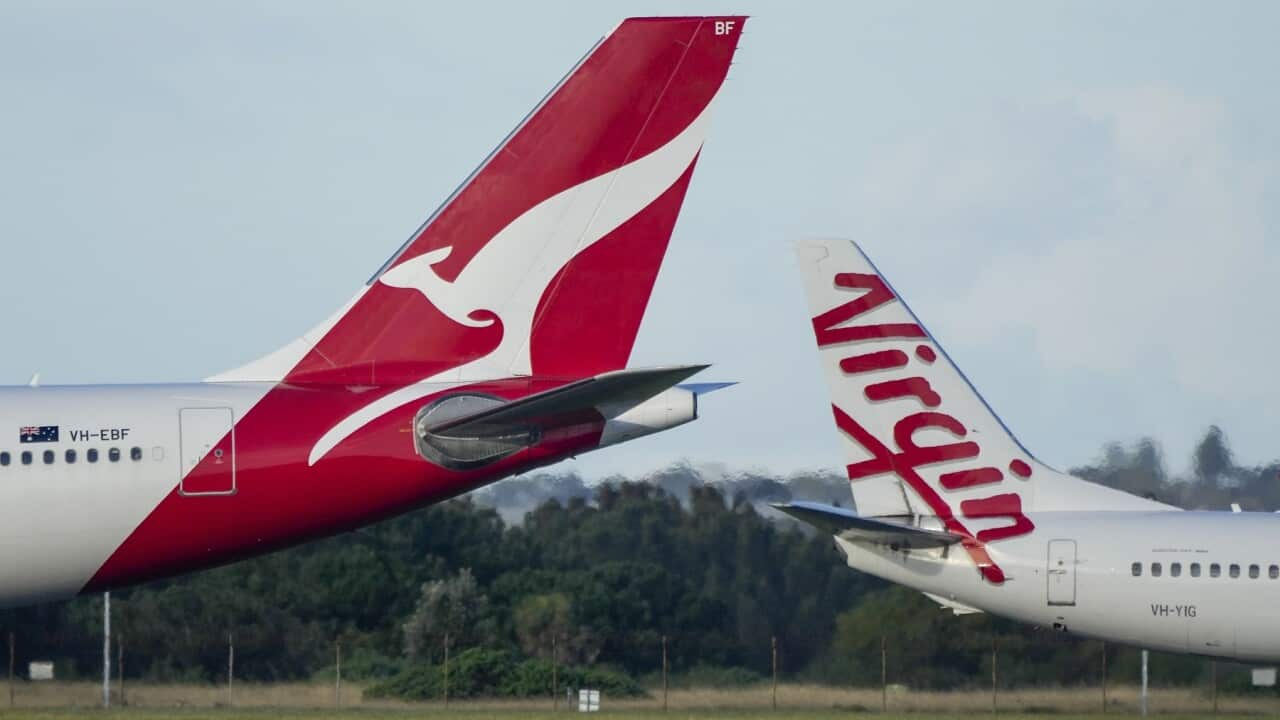Key Points
- Air New Zealand has been ranked the world's safest airline.
- Qantas was ranked second, as experts highlighted its ageing fleet.
- Virgin Australia came in fourth on the list, however, three airlines tied in third place.
Older planes have been blamed for Qantas narrowly losing out on an aviation safety top ranking to a New Zealand competitor as the Australian airline awaits new jets to replace its ageing fleet.
Air New Zealand took first position on website Airline Ratings' list of the world's safest airlines for the second year running, after overtaking its trans-Tasman rival in 2024.
Virgin Australia came in at fourth on the list, however three airlines tied in third place.
Qantas last topped the list in 2023, and its second-place ranking over the last two years has been attributed to an ageing fleet.
"This is a fair point as they do have an older fleet — quite old actually — and they did have some issues recently with some of their older aircraft," Sydney University professor and aviation expert Rico Merkert told AAP.
"That said, if maintained well, older aircraft can also be incredibly safe," he added.
Airline Ratings chief executive Sharon Petersen said there was not much difference between the top-ranking airlines.
"Whilst both airlines uphold the highest safety standards and pilot training, Air New Zealand continue to have a younger fleet than Qantas, which separates the two," she said.
Virgin's ranking largely came down to having a smaller fleet and operating fewer flights.
"Between Qantas, Emirates, Qatar, Cathay and Virgin, there's less than a point separating it, it's minuscule," Petersen said.
Griffith University aviation management lecturer Bojana Spasojevic said fleet age did not directly correlate with safety.
While newer planes could boost passenger confidence, comprehensive maintenance and safety protocols remained crucial.
"However, passengers often perceive newer aircraft as safer and more comfortable, which can enhance their overall travel experience," Spasojevic said.
"Safety perceptions significantly influence passenger choices ... sometimes even over cost considerations."
Qantas-owned Jetstar also took out second place in the ranking for safest low-cost airlines, behind Cathay Pacific-owned Hong Kong Express.
A Qantas Group spokesperson said both airlines were committed to safety as a top priority.
"The whole aviation industry is focused on ensuring flying remains the safest way to travel through continual learning and improvement," they said.
Airline Ratings uses fleet age and size, pilot skill and training, serious recent incidents, fatalities and profitability alongside other factors to determine its rankings.
Qantas might regain the top spot on the coming year's ranking as new planes enter service as part of fleet renewal that began in 2023.
The airline's program includes several Airbus aircraft models as well as more long-haul Boeing 787 planes.
Procuring planes was an expensive and prolonged process, and manufacturers faced backlogs with many airlines competing for newer aircraft in a bid to lower emissions with more fuel-efficient models, Merkert said.
Petersen said air travel was one of the safest modes of transport, but it also had the most nervous passengers, partly because crashes — like those in and that killed more than 200 people combined in late December — attracted global attention.
"When things go wrong, everyone knows about it," she said.



